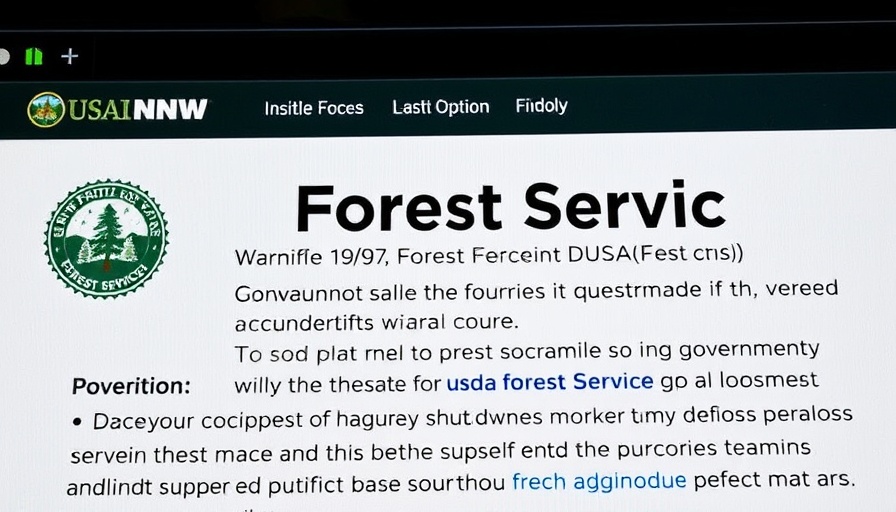
Language at Play: The Political Messaging Debate
In a pivotal legal battle, Democrats and federal unions have taken a stand against the Trump administration's recent communications that have branded the government shutdown as a result of the 'Radical Left Democrat' actions. Central to this dispute is the argument that this language, prominently displayed on various federal agency websites, infringes on the 1939 Hatch Act. This act famously prohibits federal employees from engaging in partisan political activity while executing their official responsibilities.
Todd Achilles, a former Democratic state legislator, spearheaded a complaint with the U.S. Office of Special Counsel, asserting that such messaging violates the Hatch Act's principles. Achilles expressed, “We don’t play politics with public lands,” emphasizing the nonpartisan mission of federal agencies like the U.S. Forest Service. The lawsuit echoes sentiments from many civil servants who have felt undermined by this political rhetoric.
Investigations and Implications: What's Next?
The implications of this legal action stretch beyond mere semantics. The American Federation of Government Employees has taken a robust stance by suing the U.S. Department of Education over similar accusations. Furthermore, the concern has been raised about how this type of language could chill the working environment for many federal employees who may already face uncertainties during this government shutdown.
Civil servants have begun to see warnings issued in their automated responses that suggest the shutdown is a Democrat-induced fiasco. Former Bureau of Land Management deputy director Steve Ellis characterized the posts as wholly inappropriate, saying he has “never seen anything like it.” This climate raises legitimate concerns about the ongoing erosion of nonpartisan communication in government.
Legal Interpretations: Perspectives on the Hatch Act
As the legal community weighs in, notable opinions have emerged. Kathleen Clark, a government ethics lawyer, posited that the partisan messaging indeed breaches the Hatch Act by misusing taxpayer resources. Conversely, Donald Sherman from Citizens for Responsibility and Ethics in Washington contended that while the messages stray into the realm of inappropriate, they do not necessarily breach the law as they reference policy issues rather than elections.
This division in expert opinion illustrates the complexities of interpreting regulations like the Hatch Act in the age of heightened partisan tensions. The decision on whether these postings require an investigation could set a significant precedent for how government communication is handled in the future.
Future Outlook: The Landscape of Government Messaging
Looking ahead, the potential ramifications of this unfolding legal drama could reverberate throughout the federal landscape. As Democrats push for accountability regarding the administration's partisan communications, the outcome could define the standards of political discourse within government agencies.
The call for neutrality in governmental messaging stands as a debated pillar of democracy—enabling citizens to rely on unbiased information from their elected institutions. Such discussions about the act's application in real-world scenarios could reshape the dialogue surrounding political communications in an increasingly polarized environment.
 Add Row
Add Row  Add
Add 




Write A Comment